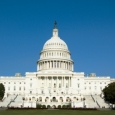Kefauver-Harris Amendment of 1962
The 1962 Kefauver-Harris Amendment origins lie in Senate Anti-Trust and Monopoly Subcommittee Chairman Estes Kefauver’s (D-TN) hearings into the drug industry. The hearings revealed staggeringly high profits and a shockingly low level of accountability. The Kefauver hearings depicted an industry out of control: where the costs of medicine were far higher than expenses warranted, where many pharmaceutical ads were blatantly misleading or overstated, research was less than rigorously carried out, and cheaper generic drugs were hard to access. The Keafauver-Harris bill leveled controls on the pharmaceutical companies, forcing them to tell doctors about the side-effects of their products, requiring companies to notify the FDA before product testing on humans, requiring that drug companies prove their drugs worked as claimed (while removing those that didn’t from the market), and forcing companies let their patents run out after a certain number of years, thus allowing their products to be sold cheaply as generic drugs. In short, the law expanded the FDA’s authority to regulate drugs for both safety and efficiency.
Commentary
Cry Wolf Quotes
If overcautious and restrictive Government regulation had blocked [penicillin] testing and introduction twenty years ago, some lives would have been saved while a multitude of lives would have been lost.
It should be enough if responsible and qualified clinicians have found that the drug produces the claimed effect…FDA should not be the arbiter of such conflicting views which necessarily involve large elements of subjective opinion by qualified scientists. Otherwise, we face the serious danger to medical progress inherent in a central authority where conflicting viewpoints in medicine will be indirectly resolved, as they are under a totalitarian system, and we run the very grave risk of recasting our system in a sterile, foreign mold…
It is important to public health, therefore, that Government regulations should not hamstring the medical advances produced by the industry. Disease and death can result from unnecessary delay in permitting a lifesaving drug to reach the public…
I feel that additional legislation…is only helpful to large industry and has a tendency to throttle small industry...
Backgrounders & Briefs
Good Rules: Ten Stories Of Successful Regulation
Demos looks at ten laws and rules that we take for granted.


